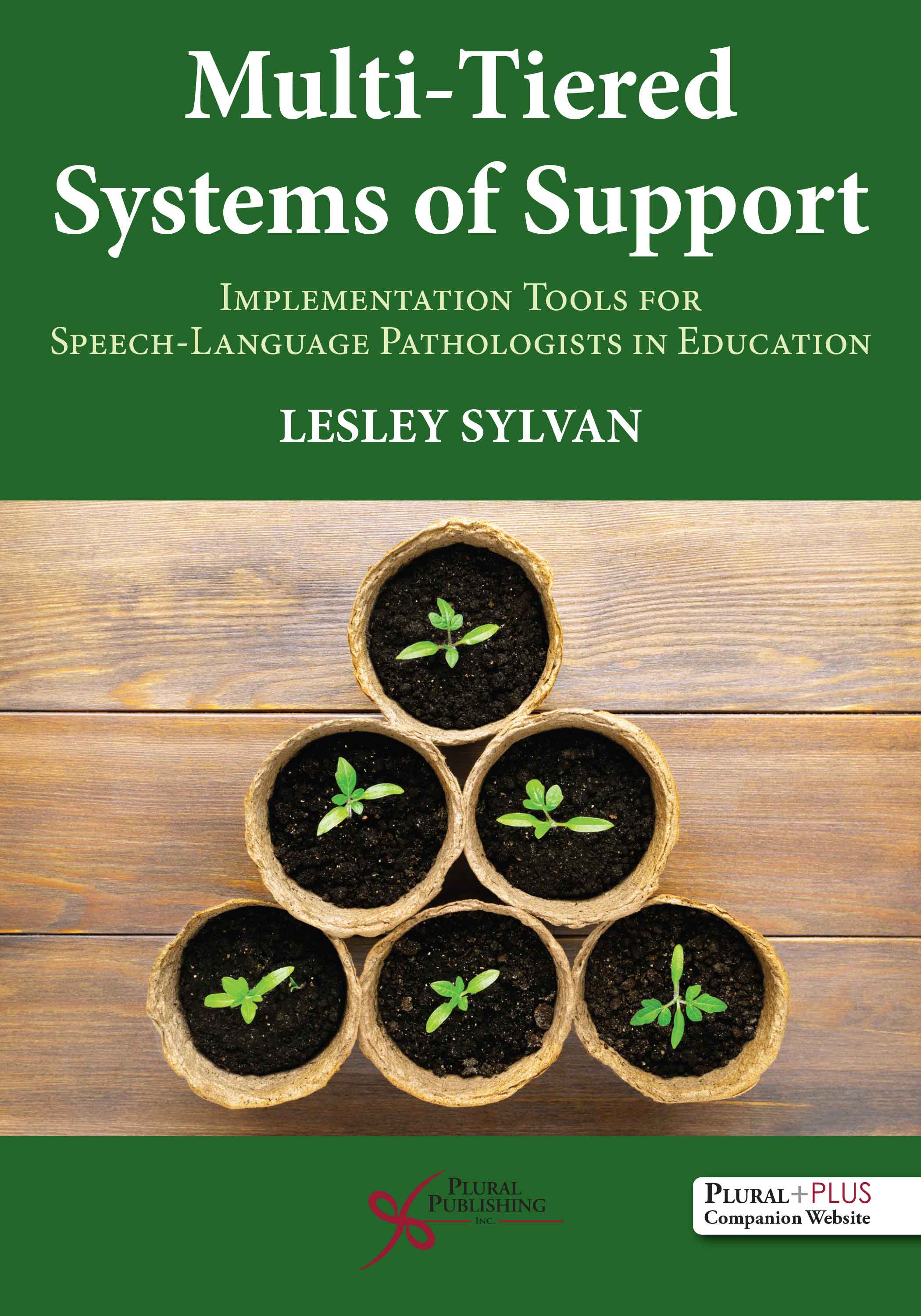
Multi-Tiered Systems of Support: Implementation Tools for Speech-Language Pathologists in Education
First Edition
Lesley Sylvan
Details: 247 pages, B&W, Softcover, 7" x 10"
ISBN13: 978-1-63550-294-7
© 2021 | Available
Purchase
Many school-based speech-language pathologists (SLPs) deal with large caseloads and limited resources. Taking on additional workload by implementing multi-tiered systems of support (MTSS) can seem overwhelming. Multi-Tiered Systems of Support: Implementation Tools for Speech-Language Pathologists in Education offers practical research-based tools that school-based SLPs can use to balance the high demands of their job with supporting general education students.
This professional resource provides answers to a range of questions about policy implications, applicability of the framework to a speech-language pathologist’s role in schools, and how an SLP can implement MTSS in their practice. Part I breaks down the important concepts of MTSS, while Part II is designed as an SLP MTSS Toolkit, featuring the collective wisdom of practitioners and researchers in the field. Throughout the text, readers will also find real-world snapshots of MTSS in action based on the experiences of actual SLPs in the field.
In addition, the appendices are filled with forms and templates for use in educational and clinical settings. Readers will also have access to a PluralPlus companion website with downloadable versions of the resources from the book.
Lesley Sylvan Discusses Multi-Tiered Systems of Support
Reviews
“[I] haven’t read anything else that so easily and practically connected the standards to SLP practices in a classroom setting... This book provided a very nice contrast between MTSS and IDEA services and clarified RTI. Well done! Examples provided were educationally relevant and easy to implement. Connections to the CCSS were evident throughout the book and will help SLPs understand their role in the provision of school services.”
— Verna Chinen, MS, Instructor, John A. Burns School of Medicine, Communication Sciences and Disorders, University of Hawaii
“The checklists and observational rubrics will be very helpful for the seasoned professional and a great model for a beginning SLP.”
— Alicia M. Davis, MS, Lecturer, Special Education and Communication Disorders, University of Nebraska-Lincoln
“School based SLPs will very much appreciate the practical information and connections to resources that they can immediately put to use in planning interventions for a variety of students at many grade levels who are experiencing a wide range of difficulties.”
— Perry Flynn, MEd, Professor, Department of Communication Sciences and Disorders, University of North Carolina Greensboro
“The manuscript provides ample information about MTSS and links to previous and co-existing models of instruction (e.g., RTI, UD) to use within the constraints and expectations of CCSS and NCLB. This establishes a strong foundation of the structures in which the SLP provides services and why… Writing to the Common Core State Standards again is refreshing and furthers the notion of how and why the SLP and classroom teacher can form comprehensive alliances.”
— Kai Greene, PhD, Assistant Professor, Division of Special Education, California State University, Dominguez Hills
“This book fills a need in the profession in guiding SLPs with the understanding and integration of Multiple Tiers of Student Support (MTSS).”
— Lesley E. Mayne, PhD, Assistant Professor, Communication Sciences and Disorders, University of Wisconsin - Eau Claire
“The book makes good use of tables, figures and graphs that help the reader gain deeper understanding.”
— Dr. Sherine Ramzy, PhD, Assistant Professor, the American University in Cairo
“The toolkit itself is one of the biggest strengths of this book. It gives precise descriptions to allow SLPs to implement a lot of practices and to share them with teachers and other collaborators.”
— Gwyneth C. Rost, PhD, Senior Lecturer, Communication Disorders, University of Massachusetts, Amherst
“I find for SLPs I supervise that MTSS is a very daunting task, so this resource will definitely serve as a quick jumping off point…”
— Kaci Stenger, MEd, MA, Hamilton County Educational Service Center
“This book will be a valuable tool for new SLPs entering into the field and experienced SLPs that are looking for interventions that provide the most bang for your buck! … I think this is just what young and busy SLPs are looking for.”
— Lisa D. Williamson, MA, Clinical Supervisor and Assistant Professor, Department of Communication, Sciences and Disorders, University of Cincinnati
"This book provides practical, research-based tools for how speech-language pathologists (SLPs) can continue to work with special education students while at the same time supporting students in general education.
The purpose of this book is to provide practical tools for SLPs to effectively provide multi-tiered systems of support (MTSS) to general education students. Author Dr. Lesley Sylvan accurately states that speech-language pathologists in the schools do not need one more thing to do; however, since MTSS is now part of the education system, she aims to offer realistic and practical tools for SLPs to be able to meet this challenge successfully. The tools she describes are not just based on theory, but on the actual clinical practice of SLPs working in public schools all over the country. [...]
The book is divided into three main parts. The first part has two introductory chapters titled, "What do SLPs need to know and explain about their role in MTSS? A Q & A Overview with Key Talking Points" and "What Decisions Do SLPs Need to Make? Key Decisions and Data Collection." Both of these opening chapters give a clear explanation of MTSS to those who may be less familiar and do a great job of explaining the need for MTSS as it replaces the discrepancy model. The second part of the book is entitled "What Tools Can SLPs Implement, Model, or Teach Within an MTSS Framework for Students in Grades K-12? Toolkit of Research-Based Approaches." This section of the book is made up of seven chapters with specific tools related to different modalities of language such as speaking and listening, reading, and writing. As well as tools related to language, speech sound disorders, fluency, voice, and social emotional skills. The third section, and perhaps one of the most useful, is the two appendixes that offer data collection forms, templates for the toolkit activities, letters, and permissions forms.
This is the first book I have read that focuses on MTSS specifically for speech-language pathologists. Dr. Sylvan takes a concept that may seem overwhelming and provides both easy-to-read theoretical reasoning as well as practical application of how to implement it. For any SLP who wants to understand and incorporate MTSS into their workload, this book is a must-have."
—Yvana Uranga-Hernandez, PhD, CCC-SLP, Biola University, in Doody's Book Reviews (February 2021)
"If you have been a Speech-Language Pathologist/Speech and Language Therapist for any length of time, the idea of multi-tiered systems of support is not new. However, there are many different implementations of this type of system. What Sylvan does is describe one way of framing the multitiered method of collaboration in education and mapping it across the core curriculum areas related to speech, language and communication (SLCN). The framework is easily accessible and involves examples and practical tools to add to the therapist’s “toolkit” as they seek to implement a more multi-tiered system within their educational work environment. The entire framework is based on the US education system but the main themes are applicable to therapists in the UK as well. As a therapist who has worked in both the USA and the UK, the theoretical framework is relevant to both education systems. . . . This is ultimately a very practical resource and has potential to improve collaboration between therapists and educators."
—Marissa P Webb, Speech and Language Therapist, in Child Language Teaching and Therapy, 2023, Vol. 39(1) 112–113
Preface
Reviewers
Part I. MTSS and the SLP: Important Concepts and Decision-Making
Chapter 1: What do SLPs Need to Know and Explain About their Role in MTSS? A Q & A Overview with Key Talking Points
Chapter 2: What Decisions do SLPs Need to Make? Key Decisions and Data Collection
Part II. What Tools Can SLPs Implement, Model, or Teach Within an MTSS Framework for Students in Grades K-12? Toolkit of Research-Based Approaches
Chapter 3: Introduction to the MTSS Toolkit
Chapter 4: Tools Related to Speaking and Listening Common Core State Standards
Chapter 5: Tools Related to Reading Common Core State Standards
Chapter 6: Tools Related to Writing Common Core State Standards
Chapter 7: Tools Related to Language Common Core State Standards
Chapter 8: Tools Related to Speech Sound Disorders, Fluency, and Voice
Chapter 9: Tools Related to Social-Emotional Skills
Appendix A. Data Collection Forms and Templates for Toolkit Activities
Appendix A–1. Form for Tracking Classroom Observations and Discussions
Appendix A–2. General Accuracy Collection Form
Appendix A–3. Pictography Note-Taking Template
Appendix A–4. Cornell Note-Taking Template
Appendix A–5. Alphabet Knowledge and Phonological Awareness Data Collection Form
Appendix A–6. Checklist for Text Preview and Text Lookback Strategy
Appendix A–7. Graphic Organizer to Aid Students in Taking Notes on Word Definitions
Appendix A–8. Semantic Feature Analysis Template
Appendix A–9. Sorting Morphemes Activity Template
Appendix A–10. Morpheme Book Template
Appendix B. Letters and Permission Forms
Appendix B–1. Sample Letter to Parents Explaining the SLP’s Role, Including MTSS
Appendix B–2. Parental Permission Form: Permission for Speech-Language Screening and Support
Appendix B–3. Parent Permission Form: Permission to Participate in Support Sessions Run by the Speech-Language Pathologist
Appendix B–4. Letter to School Staff Explaining SLP Role Generally and in MTSS
Afterword
References
Index
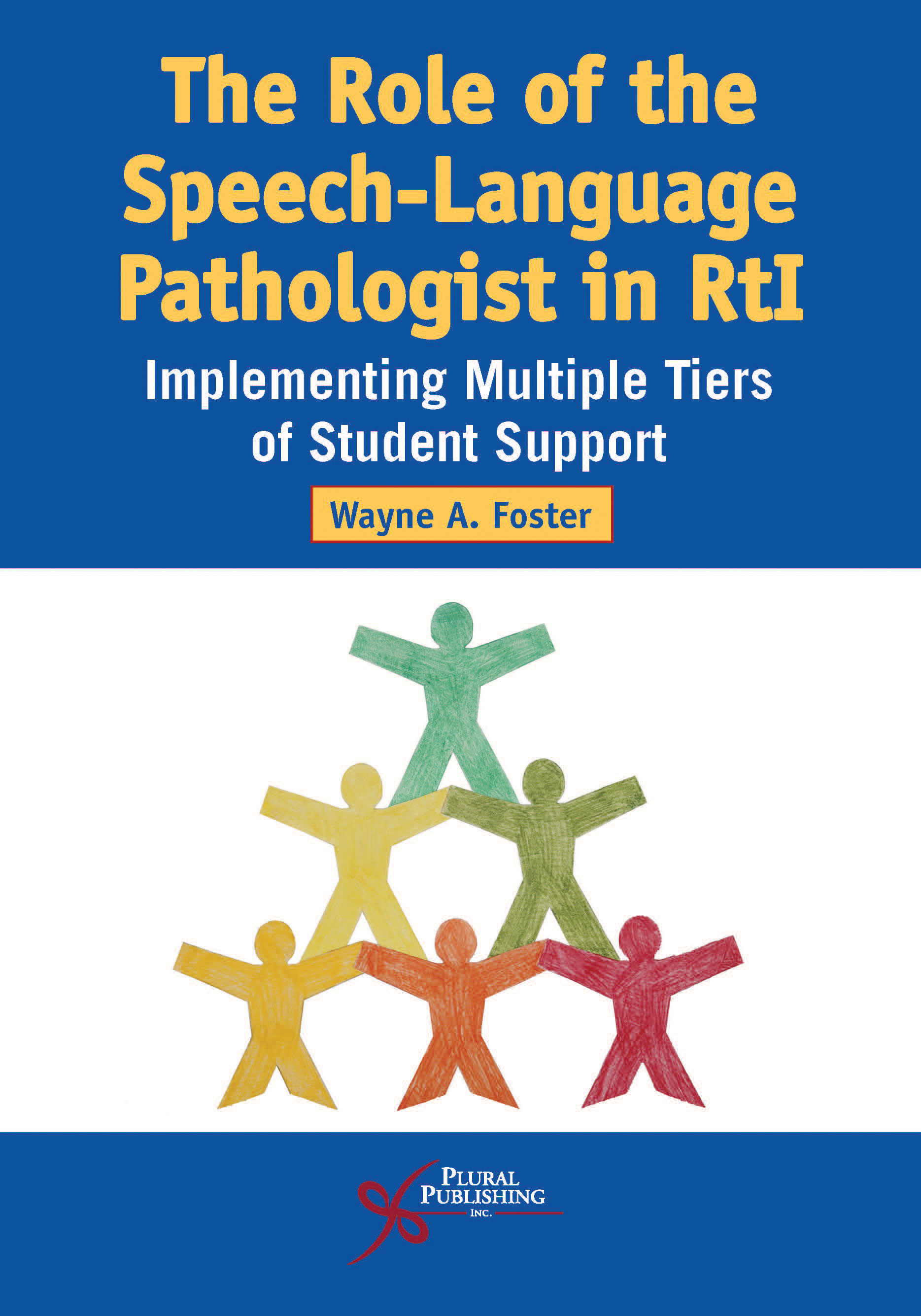
The Role of the Speech-Language Pathologist in RtI: Implementing Multiple Tiers of Student Support
First Edition
Wayne A. Foster
Details: 226 pages, B&W, Softcover, 7" x 10"
ISBN13: 978-1-63550-021-9
© 2018 | Available
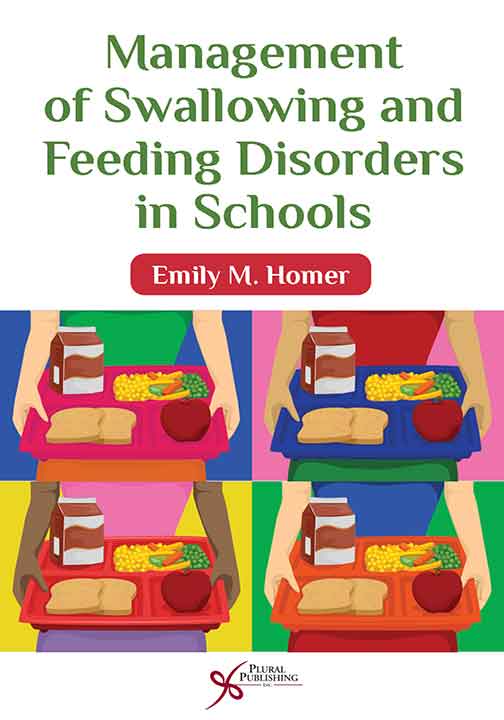
Management of Swallowing and Feeding Disorders in Schools
First Edition
Emily M. Homer
Details: 318 pages, B&W, Softcover, 6" x 9"
ISBN13: 978-1-59756-515-8
© 2016 | Available
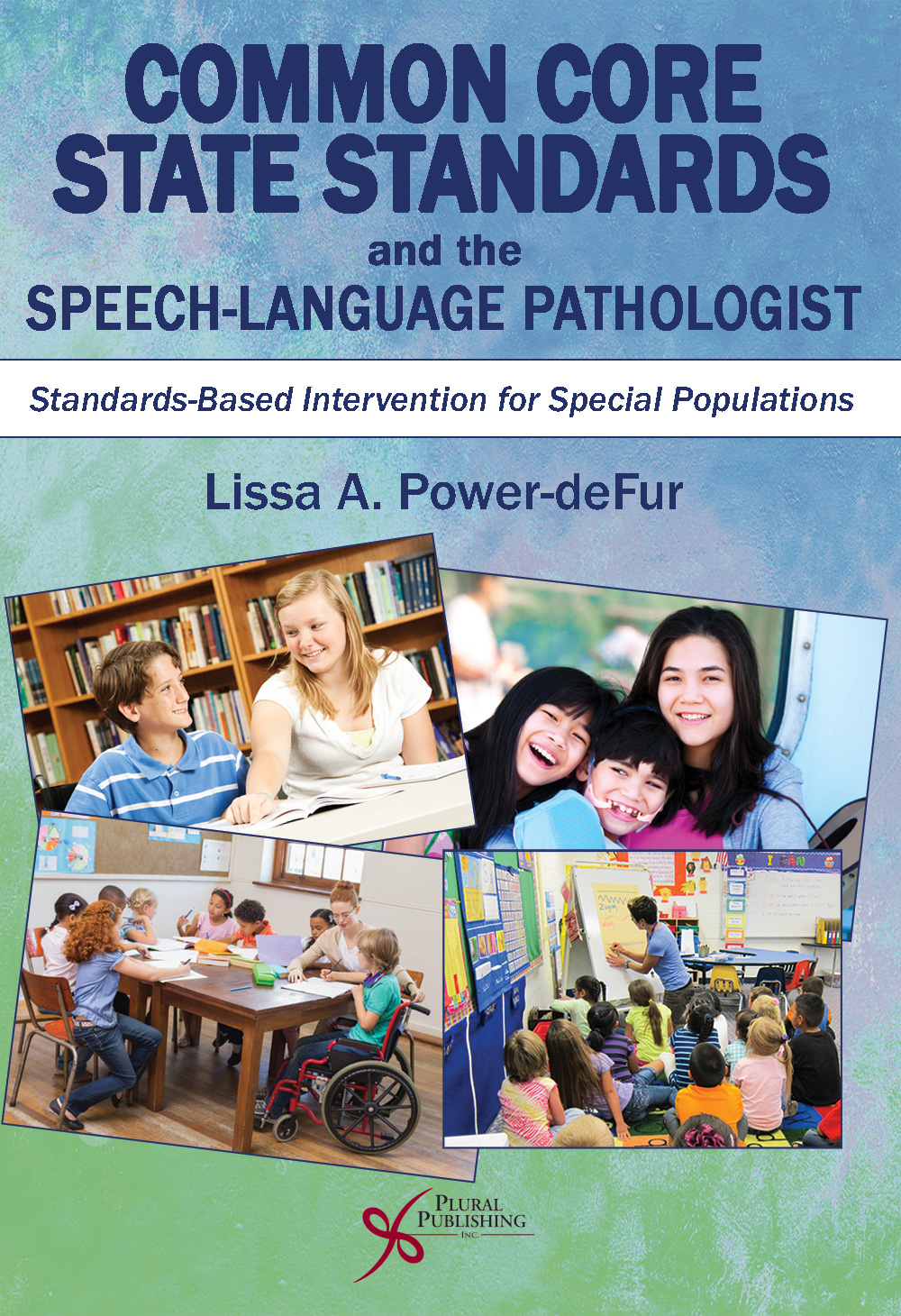
Common Core State Standards and the Speech-Language Pathologist: Standards-Based Intervention for Special Populations
First Edition
Lissa A. Power-deFur
Details: 249 pages, B&W, Softcover, 7" x 10"
ISBN13: 978-1-59756-618-6
© 2016 | Available
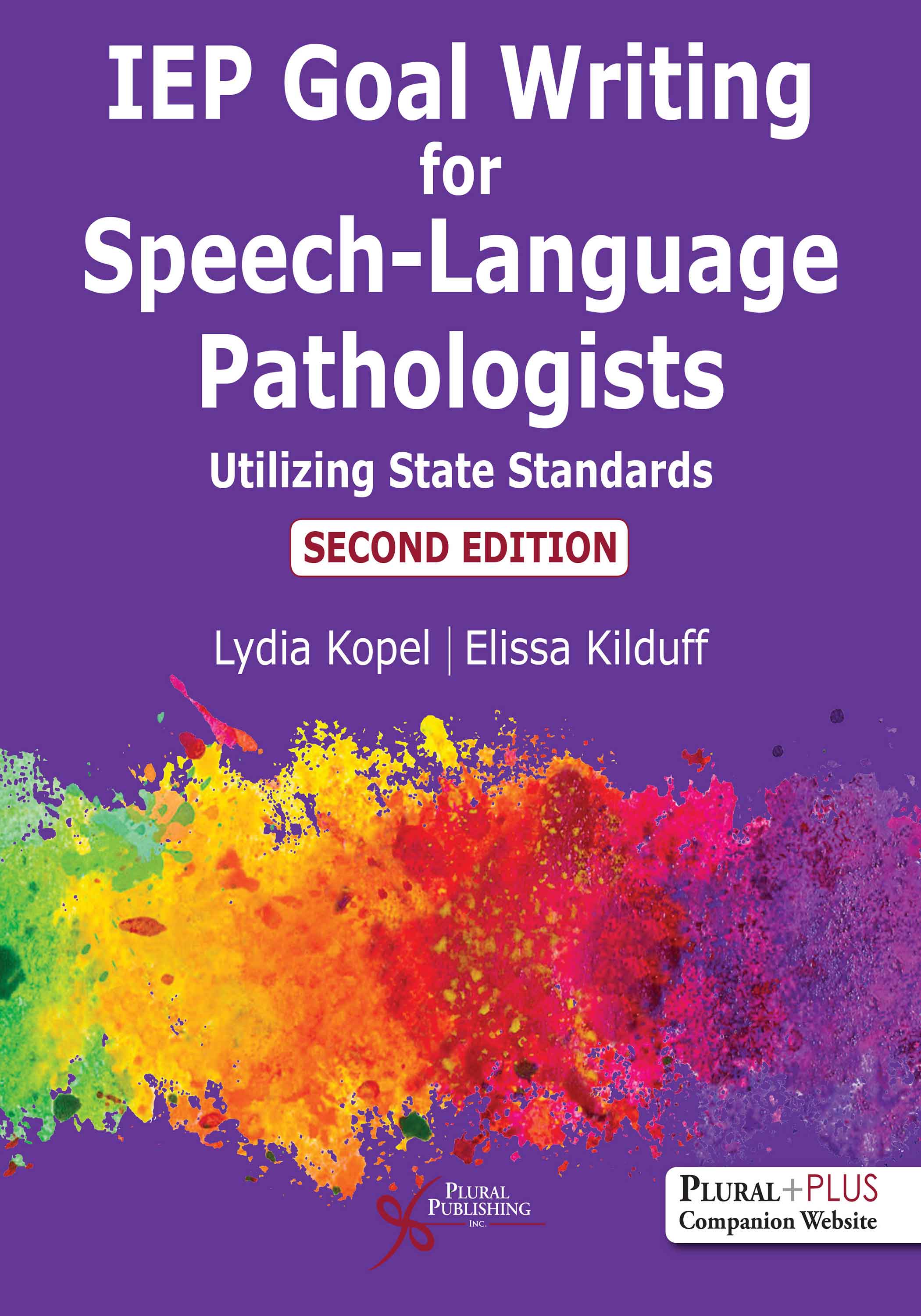
IEP Goal Writing for Speech-Language Pathologists: Utilizing State Standards
Second Edition
Lydia Kopel, Elissa Kilduff
Details: 243 pages, B&W, Softcover with layflat binding, 8.5" x 11"
ISBN13: 978-1-63550-202-2
© 2021 | Available
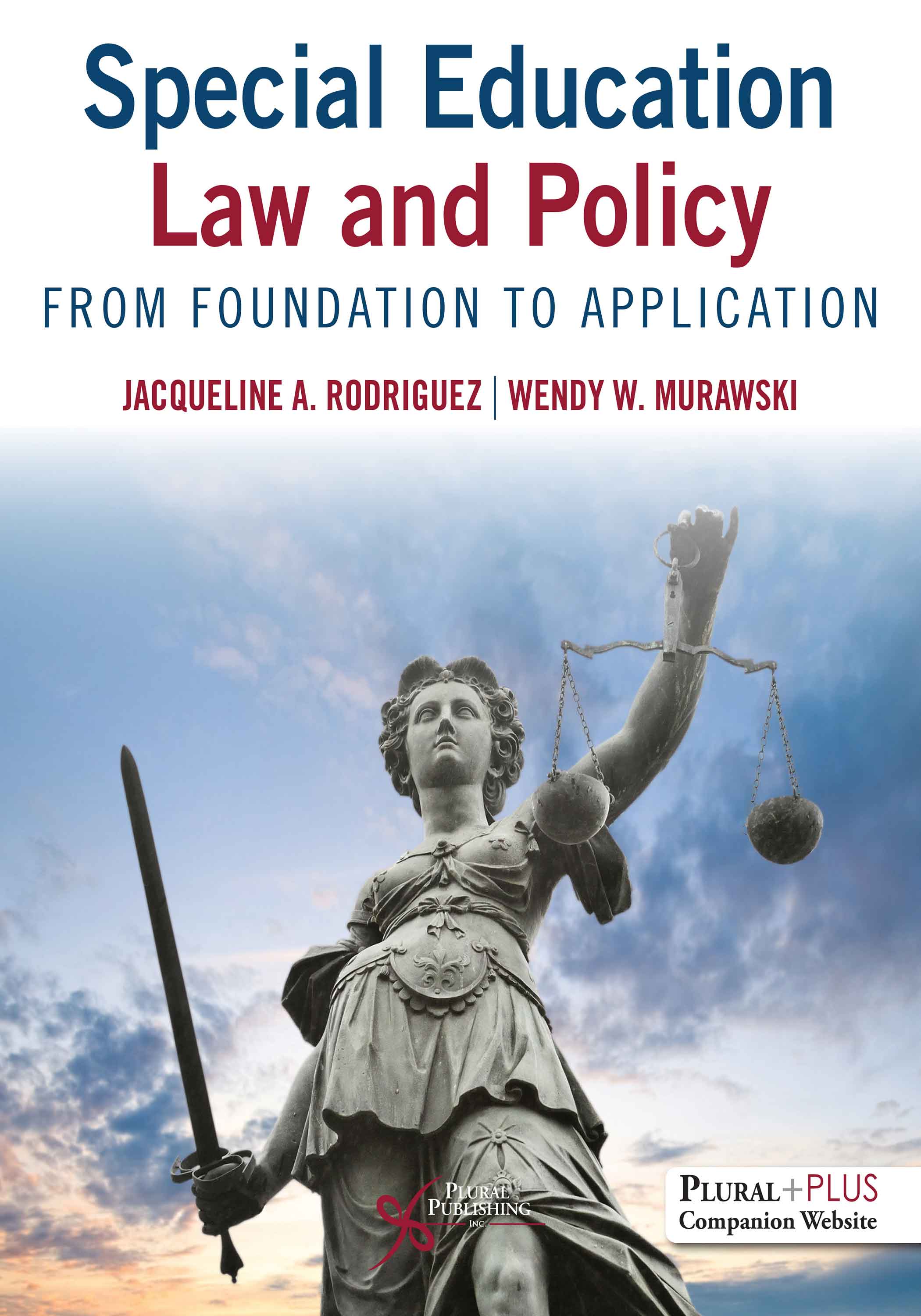
Special Education Law and Policy: From Foundation to Application
First Edition
Jacqueline A. Rodriguez, Wendy Murawski
Details: 567 pages, 2-Color, Softcover, 7" x 10"
ISBN13: 978-1-63550-231-2
© 2022 | Available
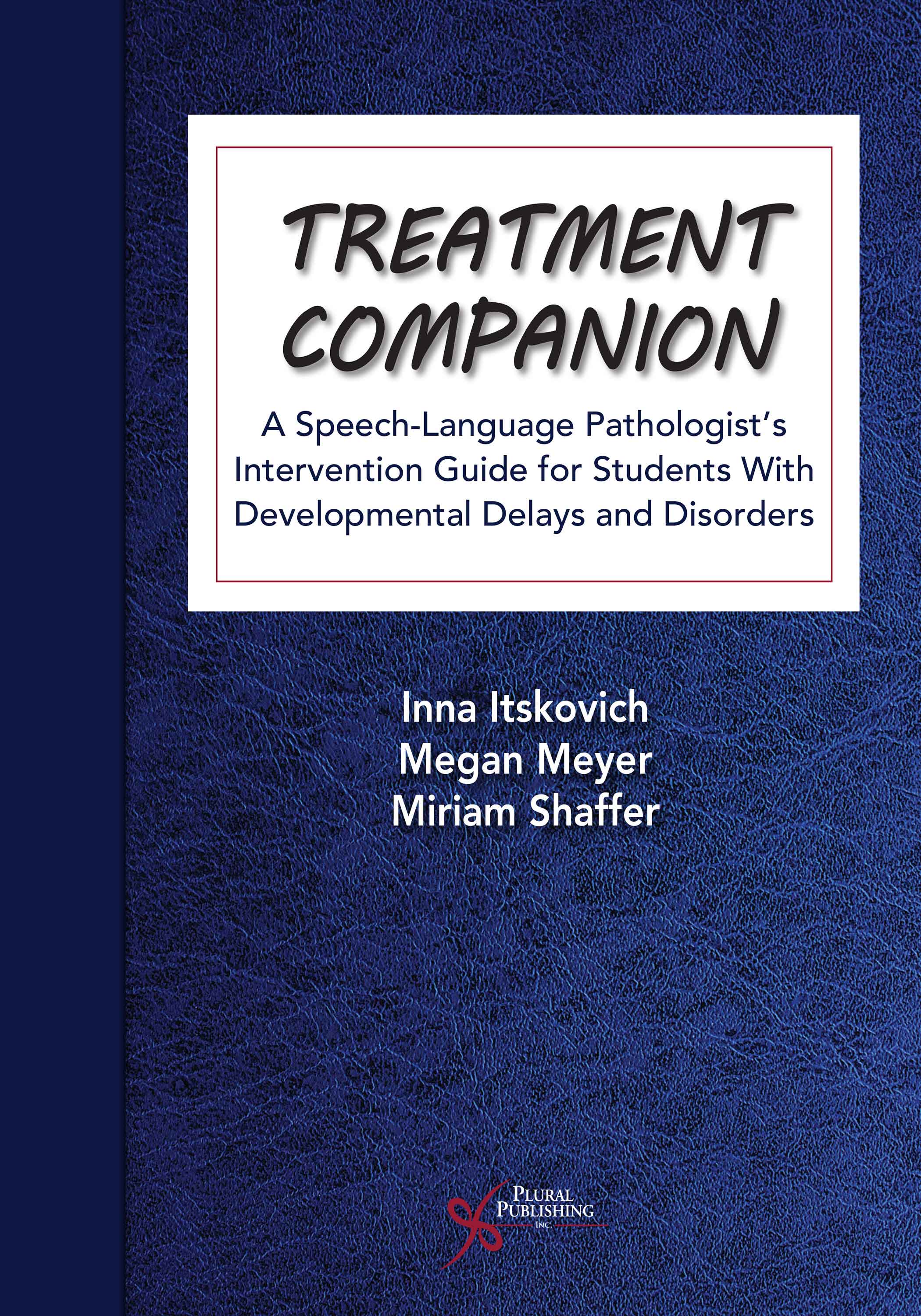
Treatment Companion: A Speech-Language Pathologist's Intervention Guide for Students With Developmental Delays and Disorders
First Edition
Inna Itskovich, Megan Meyer, Miriam Shaffer
Details: 274 pages, B&W, Softcover, 8.5 " x 11"
ISBN13: 978-1-63550-481-1
© 2023 | Available
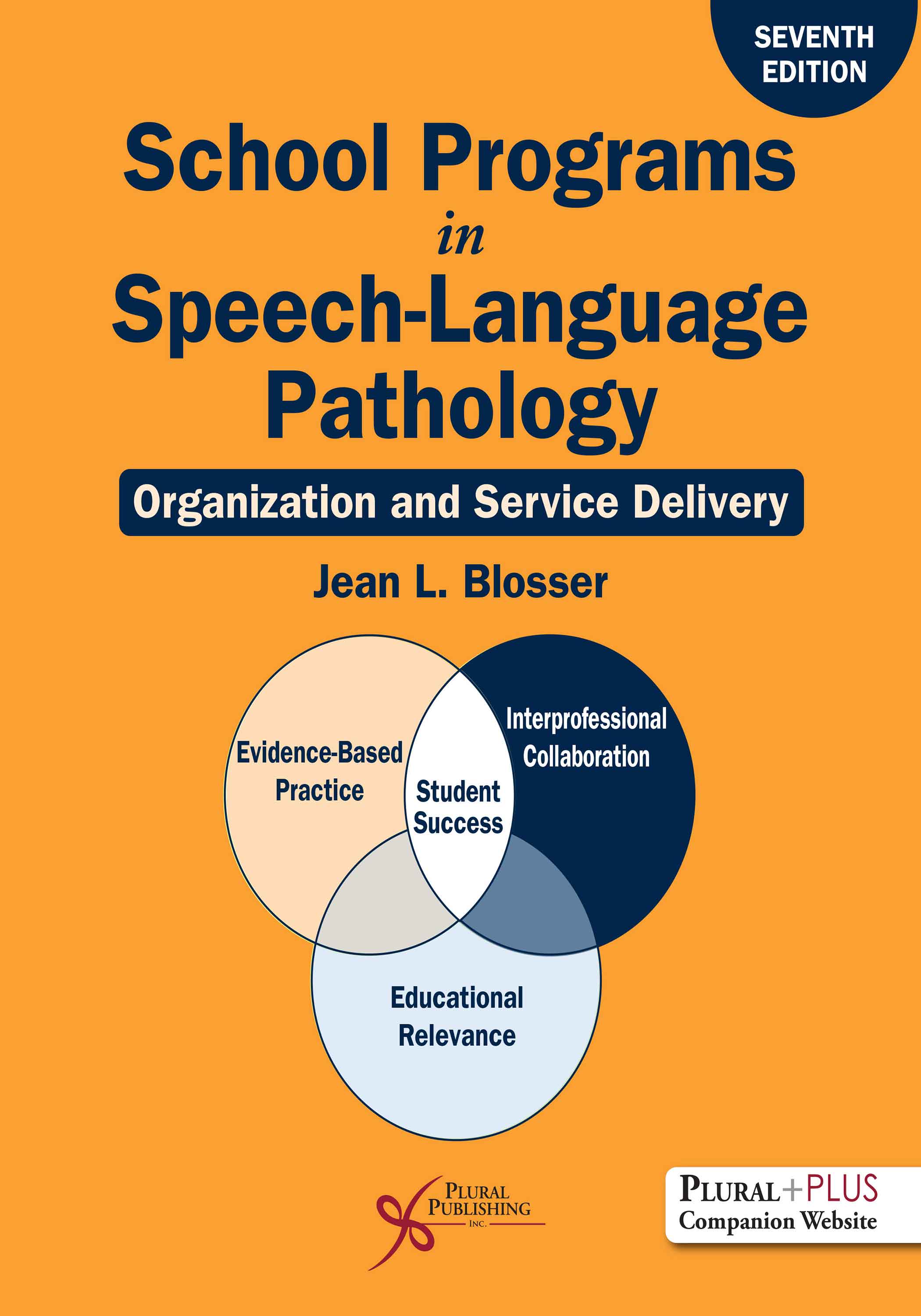
School Programs in Speech-Language Pathology: Organization and Service Delivery
Seventh Edition
Jean Blosser
Details: 457 pages, B&W, Softcover, 8.5 " x 11"
ISBN13: 978-1-63550-611-2
© 2025 | Available
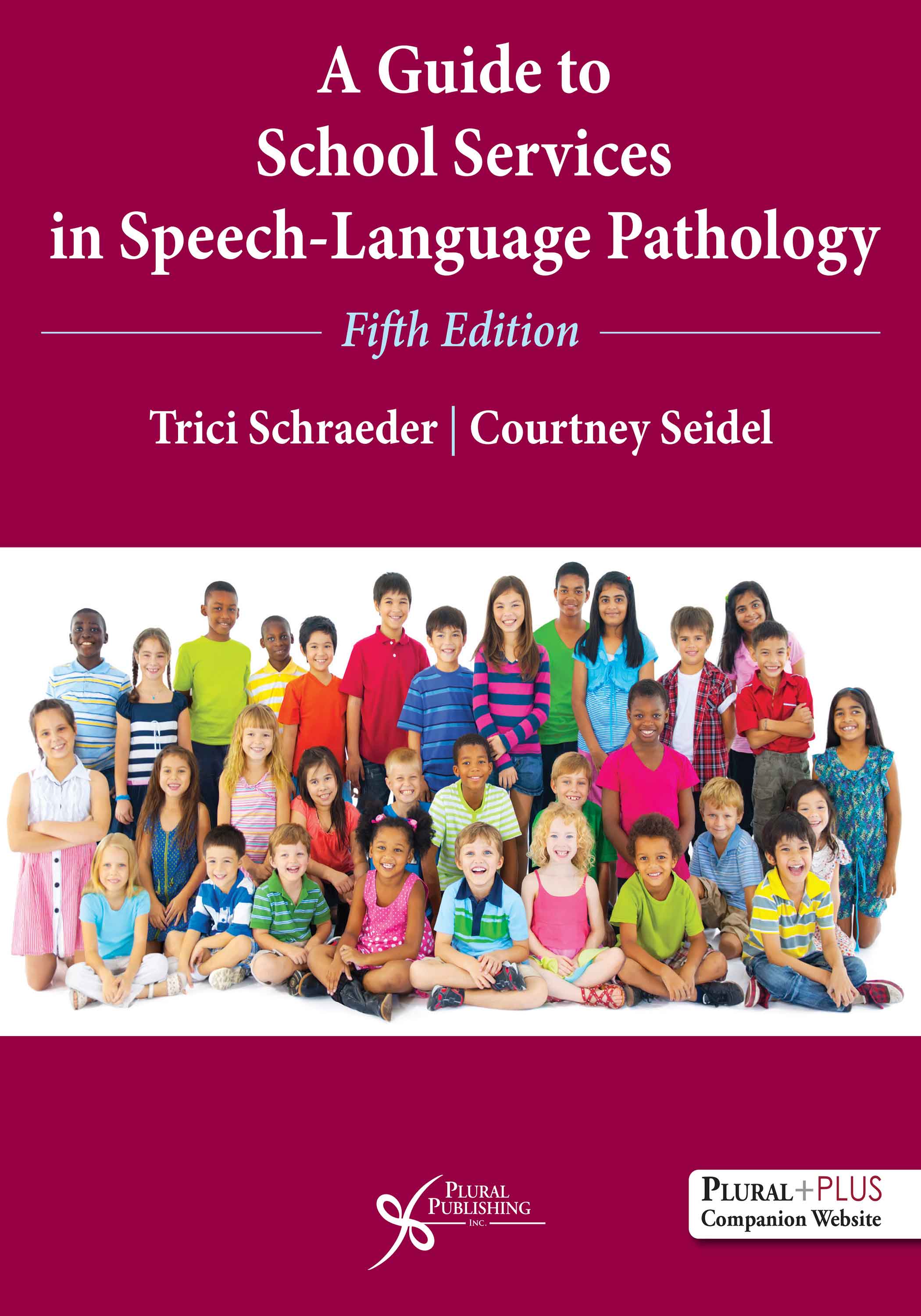
A Guide to School Services in Speech-Language Pathology
Fifth Edition
Trici Schraeder, Courtney Seidel
Details: 313 pages, B&W, Softcover, 8.5" x 11"
ISBN13: 978-1-63550-670-9
© 2026 | Available

